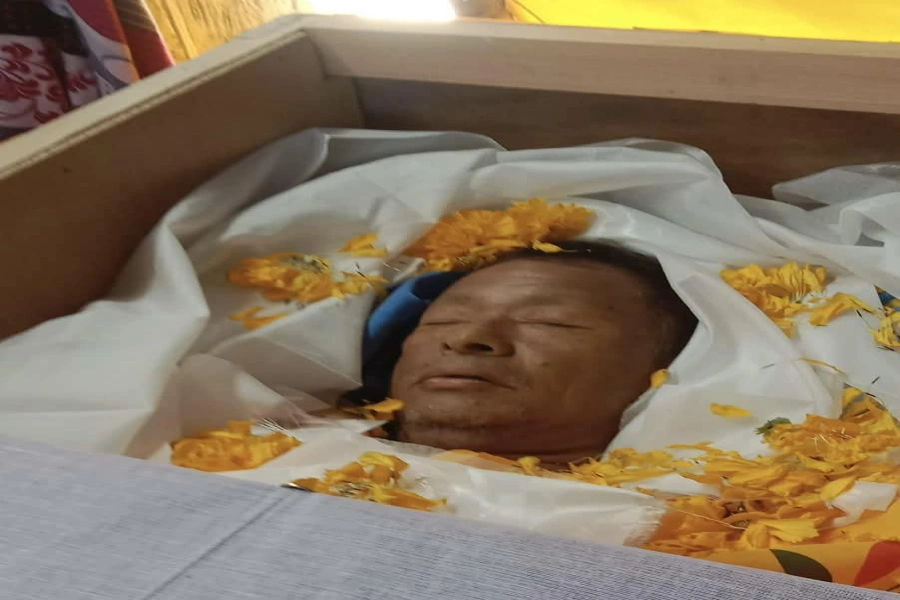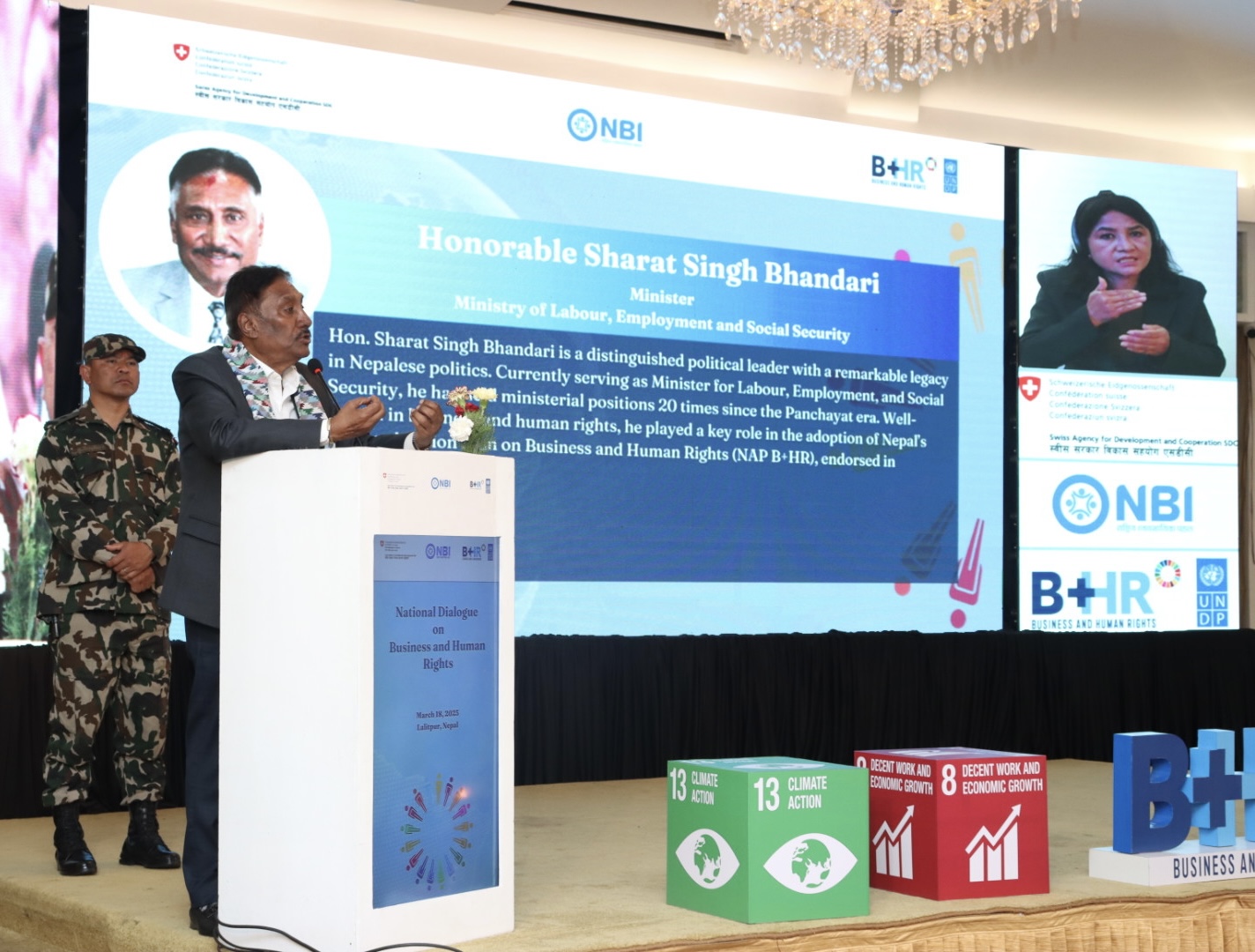KATHMANDU, March 25: Human rights advocates have renewed pressure on Bhutan to acknowledge and address its long-standing human rights violations, particularly its denial of political prisoners and its unresolved refugee crisis.
Speaking at the 55th session of the UN Human Rights Council (UNHRC) in Geneva on March 24, representatives of the Global Campaign for the Release of Political Prisoners in Bhutan (GCRPPB) delivered an oral statement during the adoption of Bhutan’s 4th Universal Periodic Review (UPR).
GCRPPB founder and global coordinator Ram Karki, alongside the organization’s Europe coordinator Gopal Gurung, addressed the plenary on behalf of the Asian Forum for Human Rights and Development (FORUM-ASIA). In a two-minute intervention, Karki condemned Bhutan’s persistent denial of the existence of political prisoners and detailed grave concerns about arbitrary detention, inhumane prison conditions, and systemic discrimination against Bhutanese of Nepali origin.
“Despite repeated denials of the existence of political prisoners, the Working Group [on Arbitrary Detention] recently determined that the continued imprisonment of three individuals constitutes arbitrary detention,” Karki said, quoting directly from the statement. “Their detention is without legal basis, for exercising fundamental freedoms, in denial of their rights to a fair trial and due process, and is based on discriminatory grounds. This reflects the reality of all political prisoners in Bhutan.”
Right group calls for probe into mysterious death of Bhutanese...

The Bhutanese ambassador dismissed the allegations, denying any ethnic discrimination or political incarceration in the country. He asserted that those mentioned were lawfully convicted for serious crimes and criticized the intervention as serving “vested interests.”
The statement highlighted a broader pattern of repression, including a ban on the Nepali language in schools, land confiscations, cultural erasure, revocation of citizenship, and the continued statelessness of thousands of Bhutanese refugees.
Bhutan rejected all 68 human rights-related recommendations during its UPR, including calls by the United States, Switzerland, Canada, and Germany to release political prisoners and address ethnic discrimination.
"Bhutan's denial of political prisoners is an insult to justice," Karki stated. "These individuals are imprisoned for standing up for their basic rights—Bhutan must stop pretending they don't exist and release them immediately."
The GCRPPB urged Bhutan to take immediate and concrete steps to address its human rights violations. These include releasing all political prisoners, providing them with proper rehabilitation and compensation, and allowing international human rights monitors access to prisons and detention centers. The group also called on Bhutan to repatriate Bhutanese refugees willing to return and to restore the citizenship of those who had it unjustly revoked.
Additionally, it emphasized the need to end systemic discrimination against ethnic Nepali-speaking Bhutanese, establish an independent national human rights commission in line with the Paris Principles, resume the teaching of the Nepali language in schools and issue tourist visas to resettled former refugees so they can visit their families.
They further called on the international community to hold Bhutan accountable for its human rights violations, emphasizing the need for sustained global pressure to bring about meaningful change.
The GCRPPB also urged the United Nations High Commissioner for Refugees (UNHCR) to reinvigorate its aid and protection efforts for Bhutanese refugees, many of whom continue to face uncertainty and neglect. Additionally, they pressed Bhutan’s government to recognize and address the reality of political prisoners, whose continued denial only deepens the injustice and suffering they endure.
During their visit to Geneva, the GCRPPB delegation also held meetings with senior officials from the UNHRC, the Office of the High Commissioner for Human Rights (OHCHR), international NGOs, and the International Committee of the Red Cross (ICRC) to draw urgent attention to the worsening human rights situation in Bhutan.









_20240829165847.jpg)




























